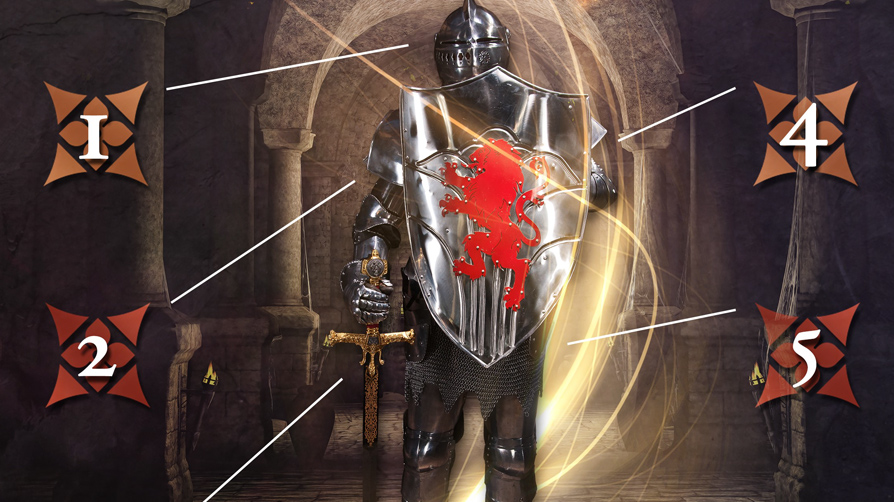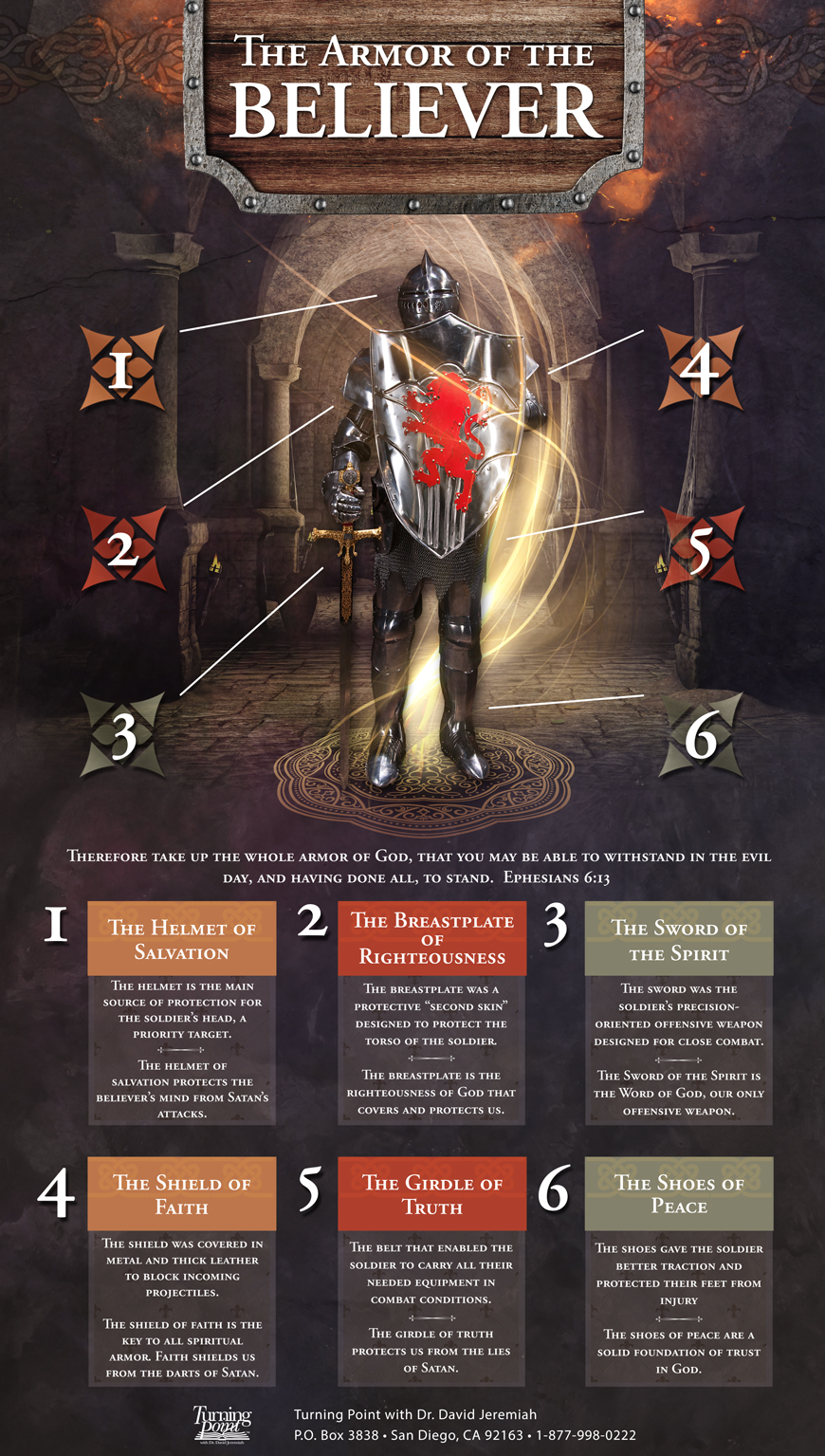

Dr. David Jeremiah Presents
Living inthe Ageof Signs
Online Destination

Living in the Age of Signs
Online Destination

The Latitude and Longitude of Gratitude: Directly Ahead
Today’s Audio Devotion:
The Latitude and Longitude of Gratitude: Directly Ahead
Why do fake indulgences like horoscopes, fortune cookies, and fortune tellers attract people? Because they all deliver messages about the same subject: the future. If the average person could have one question answered, it would likely be this: What does the future hold for me?
That is a human question, one as old as time. The ancients were as curious about the future as we are. For that reason, the psalmist assured Israel that though we don’t know what the future holds, we know Who holds the future. In fact, he wrote that all of our days were written in God’s “book” before even one of them came to pass. That means we can give thanks for the future today before the future arrives. If God has our future in His hands, we know it will be for our good regardless of what it holds (Romans 8:28).
The future entails the rest of today, not to mention tomorrow and the years to come. Starting today, give thanks for the future.
Never be afraid to trust an unknown future to a known God.
Corrie ten Boom
6 Strategies for Safeguarding our Mind
Since the seventies and eighties, video–game technology has evolved. Pong (1971) was a black–and–white game of v–e–r–y slow ping–pong. Space Invaders (1978) was a shooting game—destroying never–ending waves of digital invaders. Frogger (1981) had a hapless frog trying to cross a ten–lane freeway. But Pac–Man (1980) was a step up: Pac–Man chomped his way through a maze, eating pac–dots while avoiding four enemies. Completing the maze opened a new level with appearing–and–disappearing game aids. Finally, Mario Brothers (1983) ushered in an era of video games that demand greater mental engagement. Mario Brothers included a variety of hidden features that engaged the player's mind as much as his hands and eyes.
Now, compare the simplicity of those early games with the unbelievable complexity of a game called EVE Online (2003)—an international, multiplayer, role–playing, Star Wars–type game.
One session, the Battle of B–R5RB, lasted 22 hours and involved 7,548 people around the world, and cost $300,000 dollars in real money—money spent by players to purchase positions and armaments. There are 5,431 known galaxies, 2,498 uncharted wormhole systems, six major coalitions of players controlled by fleet commanders, the largest of which has 36,432 players scattered across the globe. Warships take weeks or months to build.1
Even though video games do not represent reality, they serve as an apt metaphor: The mind is critical. There is much to learn and remember! That is why games like EVE Online have no win–lose feature; they continue indefinitely, requiring constant mental attention and progress.
In the same way, the mind is the most critical part of spiritual warfare. Without actively engaging the mind—learning, thinking, discerning, understanding, deciding, committing—we are doomed to spiritual defeat by Satan. That is why the Bible speaks of the mind and thinking nearly 150 times.
Struggling for the Mind
As the great teacher and writer Oswald Chambers wrote, "Your mind is the greatest gift God has given you and it ought to be devoted entirely to Him. You should seek to be 'bringing every thought into captivity to the obedience of Christ…' (2 Corinthians 10:5). This will be one of the greatest assets of your faith when a time of trial comes, because then your faith and the Spirit of God will work together."2
Whether the mind is the greatest gift of God or one of God's greatest gifts doesn't matter—Chambers' point is well made: Whatever is greatly valued by God is going to be greatly contested by Satan. We can go so far as to say that the human mind is the ultimate battlefield for spiritual warfare.
Satan is more concerned about what we think and believe than anything else.
Jesus called Satan "the father of lies" (John 8:44, NIV). Why? Because his chief strategy is to deny, confuse, misrepresent, and counterfeit whatever God has said. God's native language is truth (John 17:17), but Satan's native language is deceit (John 8:44). Our mind is the domain in which we decide what is true and what is false. As Oswald Chambers pointed out, Paul told the Corinthians they needed to "[bring] every thought into captivity to the obedience of Christ" (2 Corinthians 10:5).
When it comes to the struggle over our minds, it is imperative that we remember the truth of 1 John 5:19, "The whole world lies under the sway of the wicked one." Satan doesn't own this world, but he has access to it. His influence is found everywhere—in government, education, entertainment, business, the family, ecclesiastical realms . . . everywhere! The unguarded mind will receive what the world dispenses and believe there is nothing more.
That is why the apostle Paul told the Roman believers, "And do not be conformed to this world, but be transformed by the renewing of your mind, that you may prove what is that good and acceptable and perfect will of God" (Romans 12:2). It is also why Jesus said we must love God with all our heart, all our soul, and all our mind (Matthew 22:37).
Just as going deeper into new levels of a video game requires dedicating our mind to learning new information and strategies, so going deeper into the knowledge of God means loving Him with all our mind. God is infinite, and the human mind is made in the image of His. It is estimated that a mouse brain contains 70 million neurons while a human brain contains one–thousand times that many neurons (70 billion). So far, neuroscientists who are creating 3–D images of mouse brains have recreated a segment about the size of a grain of salt. The data contained in that tiny segment is about one–hundred terabytes—the equivalent of 25,000 high–definition movies.3 Imagine the amount of data held in the entire mouse's brain—and in the human brain!
Such mind–boggling capacity has many implications. First, we have more than a lifetime's worth of renewing to do. Second, there is a lot of mental capacity for us to safeguard against the lies of Satan.
Safeguarding the Mind
Follow these safeguard strategies for your mind:
Protection begins with salvation. Possessing the "helmet of salvation" (Ephesians 6:17) means your mind is protected from the lies and influence of Satan. Lacking this helmet means not having "the mind of Christ" (1 Corinthians 2:16).
Prayer is the path to peace of mind (Philippians 4:6–7). When we submit every worry to God in prayer, we rest in His protection. Our heart and mind are guarded by "the peace of God" (verse 7).
Preparation is an action word. Peter says we are to "gird up the loins of [our] mind" (1 Peter 1:13)—a reference to ancient military readiness. We prepare our mind for spiritual battle by renewing it daily through the study of Scripture.
Primacy of mind means, "Set your mind on things above, not on things on the earth" (Colossians 3:2; Philippians 3:19). Yes, we must give thought to life on earth, but those things are not our source of values, fulfillment, or truth.
Position means "place of mind"—the permanent focus for our mind: "You will keep him in perfect peace, whose mind is stayed on You, because He trusts in You" (Isaiah 26:3). Everybody trusts in something, but only the mind placed toward God has perfect peace.
Process refers to being "serious and watchful" (1 Peter 4:7).
We must process and evaluate everything we encounter through a biblical grid. Nothing should find a permanent place in our mind that does not square with God's Word in terms of purity, importance, truth, and edification.
Even if we are not consumers of video games, there are lessons we can learn from them. They are mind games for entertainment, but Satan plays mind games with us that battle for our soul. These six strategies help us safeguard our mind as we dedicate our thoughts to God's glory.
1Bo Moore, "Inside the Epic Online Space Battle That Cost Gamers $300,000," Wired, February 8, 2014, http://www.wired.com/gamelife/2014/02/eve–online–battle–of–b–r/?cid=18334834, accessed on February 20, 2019.
2Oswald Chambers, My Utmost for His Highest (Grand Rapids, MI: Discovery House, 2010), February 11 reading, "Is Your Mind Stayed on God?" http://utmost.org/is–your–mind–stayed–on–god/, accessed February 20, 2019.
3Carl Zimmer, "Secrets of the Brain." National Geographic, February 2014; 39, 43.












